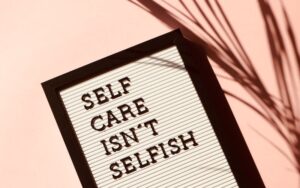Mental health refers to your overall psychological well-being. It includes the way you feel about yourself, the quality of your relationships, and your ability to manage your feelings and deal with difficulties.
Anyone can experience mental or emotional health problems — and over a lifetime, many of us will. According to the Centre for Addiction and Mental Health, one in five Canadians experiences a mental illness in any given year. And by the time Canadians reach 40 years old, one in two people have, or have had, a mental illness.
While they’re not substitutes for advice or care from qualified health professionals (see the end of the article for programs and resources), these tips can help you elevate your mood, become more resilient and enjoy life more.
Talk to someone you trust
Talking to someone you trust – whether a friend, a family member, or a colleague – can help. You may feel better if you are able to openly share what you are going through with someone who cares about you. If you live in an area where face-to-face interactions are limited, you can still stay connected with your loved ones through a video call, phone call or messaging app.

Look after your physical health
Taking care of your physical health helps improve your mental health and well-being. Be active for at least 30 minutes daily, whether that’s running, walking, yoga, dancing, cycling, or even gardening. Eat a balanced and healthy diet. Make sure to get enough sleep.

Create a mental fitness plan for mental health
Mental health and mental fitness are not synonymous. But if you have a solid mental fitness plan, you’re better equipped to take good care of your mental health.
For example, my mental fitness plan combines physical health, writing, mindfulness, coaching, and reading. I like to think about my mental fitness as a piece of the mental health pie. It’s a supplemental way of caring for my mental health but doesn’t cover all my mental health needs.
For Sarah Greenberg, a mental fitness plan was a critical component of proactively caring for her mental health.

It’s good to think about your strategy regarding mental health and mental fitness. How much are you investing in proactive mental fitness care? What are some small habits or daily routines you can implement?
Connecting with others
Humans are social creatures, and it’s important to have strong, healthy relationships with others. Having good social support may help protect you against the harms of stress. It is also good to have different types of connections. Besides connecting with family and friends, you could find ways to get involved with your community or neighborhood. For example, you could volunteer for a local organization or join a group that is focused on a hobby you enjoy.

Take a break if you need to
If you’re feeling overwhelmed by a stressful situation, try to take a break. A change of scene may help you to relax and relieve feelings of distress, even just for a few minutes.

Try to make time to do an activity you like on a regular basis. This could be cooking a meal, getting in touch with a friend or watching TV.




